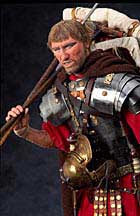 degree, at UCL, was in Ancient History and Social Anthropology; She then held research fellowships in Cambridge and Newcastle, taught in Liverpool for 8 years, and came to Reading on a Wellcome Trust University Award in 1996. She has been a Fellow at the Netherlands Institute for Advanced Studies (2001), a Landsdowne Visiting Lecturer at the University of Victoria, British Columbia (2002), and a Visiting Professor at the University of Texas at Austin (2005). She is chair of the Wellcome grants panel, 'Research Resources in the History of Medicine'.
degree, at UCL, was in Ancient History and Social Anthropology; She then held research fellowships in Cambridge and Newcastle, taught in Liverpool for 8 years, and came to Reading on a Wellcome Trust University Award in 1996. She has been a Fellow at the Netherlands Institute for Advanced Studies (2001), a Landsdowne Visiting Lecturer at the University of Victoria, British Columbia (2002), and a Visiting Professor at the University of Texas at Austin (2005). She is chair of the Wellcome grants panel, 'Research Resources in the History of Medicine'.Her main interests are:
Ancient medicine. From my PhD (on ancient Greek menstruation) onwards, I have been interested in setting ancient medical thought within its social and cultural context, as one way - among others - of making sense of life. I've therefore looked at ancient ideas about creation, the role of women, and sacrifice to illuminate Hippocratic gynaecology (Hippocrates' Woman: Reading the female body in ancient Greece, Routledge, 1998). From teaching the history of medicine at Reading, I wrote a short introduction to the main issues, Greek and Roman Medicine (Bristol Classical Press, 2001). A volume of essays on Health in Antiquity was published under my editorship in March 2005 (Routledge). Every other year I organise a conference on Ancient Medicine at Reading (in the alternate years, this is run by Professor Philip van der Eijk at Newcastle). I also examine the History of Medicine Diploma run by the Society of Apothecaries, London, and sit on various committees of the Wellcome Trust.
Reception of ancient medicine. I have written on the use of classical models in nursing and midwifery, but I am particularly interested in the alleged (and imaginary) classical origins of 'hysteria', on which I've published Hysteria Beyond Freud (written with S. Gilman, R. Porter, G.S. Rousseau and E. Showalter, University of California Press, 1993), a section in History of Clinical Psychiatry (eds G. Berrios and R. Porter, Athlone Press, 1995), and 'Recovering hysteria from history: Herodotus and "the first case of shell shock"' in Peter Halligan et al. (eds), Contemporary Approaches to the Science of Hysteria: Clinical and Theoretical Perspectives (Oxford University Press, 2001). My project for the first five years at Reading, on which I continue to work, concerned the reception of the sixteenth-century compilation, the Gynaeciorum libri, edited successively by Wolf, Bauhin and Spach; in particular, the impact of Hippocratic gynaecology in the period after its publication in Latin by Calvi in 1525, but also the subsequent history of the books themselves, their owners and their uses. I have given a number of sections of this project as papers, and incorporated some of my findings into my monograph The Disease of Virgins: Green-Sickness, Chlorosis and the Problems of Puberty (Routledge, December 2003), which moves from sixteenth-century ideas based on Hippocratic medicine, to the early twentieth century. On the Modern History MA, I teach a module called 'Viewing the body in seventeenth-century England', which uses Harvey's De motu cordis as a way of discussing issues of authority and science. Harvey's discovery of the circulation of the blood explicitly cites Aristotle on the circle as the purest form of movement. From 1998-2003 I was the co-editor of Social History of Medicine (Oxford University Press).
Gender/History of the body. I have published on the history of pain, drawing on comparative studies of modern sufferers from chronic pain. I have published on early sexology and I am currently working on myths and stories of bearded women. I was Women's Studies Area Advisor to the Oxford Classical Dictionary (1996).
Mythology. I have published on the myths of Tithonos, on mermaids (on which topic I have also done a lot of media work), and on the myth/fable of Agnodike, 'the first midwife'; I've also investigated how this story was used to give authority to women in medical roles in various historical periods. I'm preparing an article, 'Mothering medicine', on the wider dimensions of this topic.
Death. In 1981 I co-edited, with S.C. Humphreys, Mortality and Immortality: the anthropology and archaeology of death (Academic Press). I've recently been working on the role of the doctor at the deathbed in classical antiquity; a preliminary study has been published in Dutch."
Contact: h.king@reading.ac.uk
 "Dr. John Creighton?s research centres upon Later Iron Age and Early Roman NW Europe. His books include: ?Britannia: the creation of a Roman Province? (2005); ?Coins & Power in Late Iron Age Britain? (2000), 'Celti: the archaeology of a Hispano-Roman Town in Baetica' (with Simon Keay and Jose Remesal, 2001), and he has co-edited the volume 'Roman Germany: Studies in Cultural Interaction' (1999).
"Dr. John Creighton?s research centres upon Later Iron Age and Early Roman NW Europe. His books include: ?Britannia: the creation of a Roman Province? (2005); ?Coins & Power in Late Iron Age Britain? (2000), 'Celti: the archaeology of a Hispano-Roman Town in Baetica' (with Simon Keay and Jose Remesal, 2001), and he has co-edited the volume 'Roman Germany: Studies in Cultural Interaction' (1999). Biography:
Biography: James Russell is a general classicist who specializes in Roman and early Byzantine art and archaeology and Greek and Latin epigraphy of the Roman period.
James Russell is a general classicist who specializes in Roman and early Byzantine art and archaeology and Greek and Latin epigraphy of the Roman period. 



